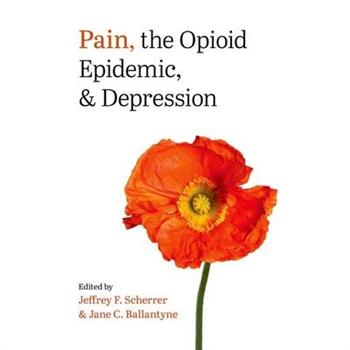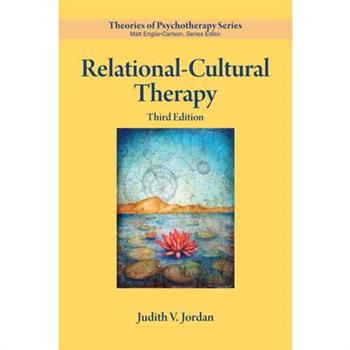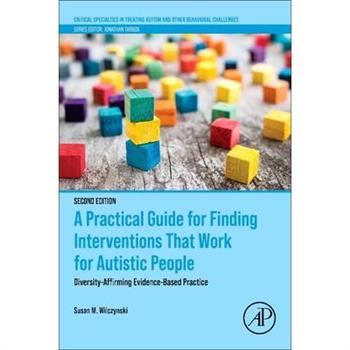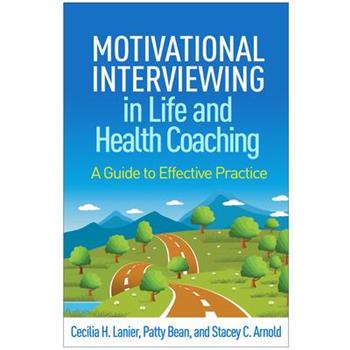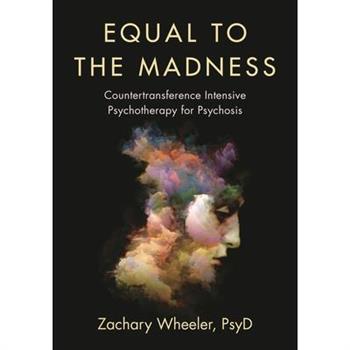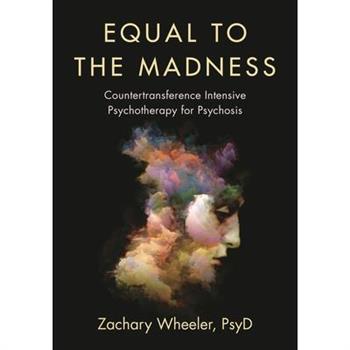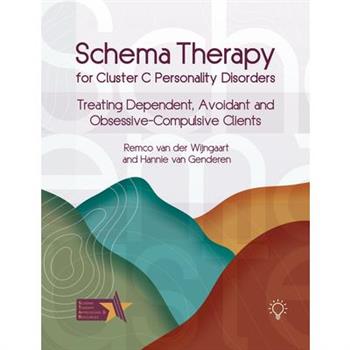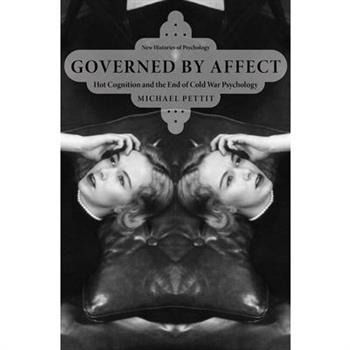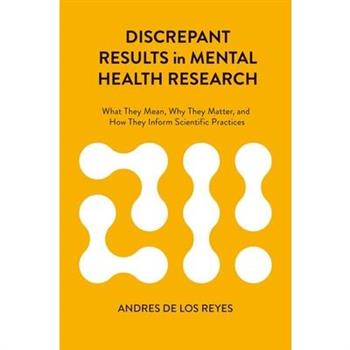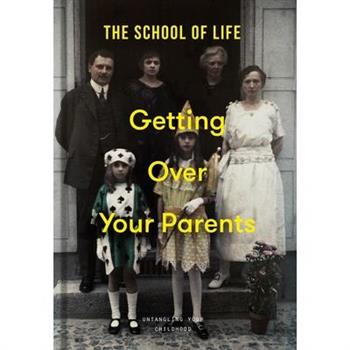Shame and Grace
In this book, shame theory meets memoir and meditation. Therapists, patients, and self-reflective readers from many walks of life will be moved and changed by time spent with this master clinician, thoughtful mentor, and fellow traveler.
Medical and Educational Needs for Autism
Medical and Educational Needs for Autism aims to provide understanding and assistance to clinicians interacting with ASD patients and their caregivers. This book is divided into two clear sections, first the medical coverage and second, an educational section. The first section includes chapters on sleep disorders, feeding/nutrition concerns, and medication. The second section focuses on the education component which includes IEP processes and activities for daily living.
Stepping Into Emotionally Focused Therapy
This accessible, practical, and thoroughly updated second edition introduces and presents how emotionally focused therapy can be used effectively across all three modalities, couple, family, and individual therapy, with clients from a diversity of backgrounds.Responding to critical updates in the field, this second edition once again follows Emily, an EFT therapist, to demonstrate how EFT can be used in practice. With updated references, research, and terminology throughout, this new edition reflects recent theoretical and practical updates by refocusing the model toward therapist interventions, such as the "EFT Tango," rather than the client change events, making it more accessible for readers to learn. It addresses the current need to integrate explicit socio-cultural sensitivity into EFT by including diverse case studies, explicit discussion of how the model can be applied with a diversity of clients, and how EFT therapists can integrate cultural sensitivity and attunement across multiple and diverse identities, such as race, gender, sexual orientation, disabilities, neurotypicality, class, and religion. It can also be used alongside a practical new workbook, Workouts for Stepping into Emotionally Focused Therapy, providing therapists with all the tools needed to confidently integrate this approach into their practice.This book is an essential read for all marriage and family therapists in practice and in training as well as counselors who are looking to use EFT with couples, families, and individuals.
Pain, the Opioid Epidemic, and Depression
Long-term prescription opioid use occurs in a substantial proportion of new opioid users. Most concerning is that high risk patients with comorbid depression, anxiety, nicotine dependence, and substance use disorders, compared to patients without these factors, continue to be prescribed higher opioid doses for longer durations, and are more likely to receive opioids with high abuse potential. To understand this phenomenon, we must consider the relationships between pain, mental illness, substance use disorder and long-term prescription opioid use. While separate fields have investigated the bi-directional relationships between depression, pain, and long-term prescription opioid use independently of one another, there is no text which has brought together the complex interaction of all three together. Drawing on contributions from neuroscience, pain psychiatry, clinical epidemiology, pharmacoepidemiology, clinical trials and research on social determinants of health, Pain, the Opioid Epidemic, and Depression is the first book to integrate currently siloed areas of investigation and clinical knowledge. This book takes a comprehensive approach, from neurophysiology to epidemiology to clinical practice, and explains the processes driving maintenance of chronic pain, persistent depression, and long-term prescription opioid use, as well as taper and buprenorphine treatment for opioid use disorder. Readers will come to understand the central role of depression, other psychiatric disorders, and social determinants that contribute to pain management outcomes, the opioid epidemic, and our response to opioid dependence and opioid use disorder. By taking a multidisciplinary approach to compiling what is known about the relationships between pain, depression, other psychiatric disorders and opioids, this volume will be a valuable clinical resource for a range of healthcare and mental health professionals who encounter chronic pain and comorbid mood disorders, while also spawning new directions for researchers.
Working Creatively with Obstacles to Client Change in Rational Emotive Behaviour Therapy
Productive therapeutic change is facilitated when the therapist and client have a good therapeutic relationship, share views on salient therapeutic matters, agree on goals to enhance client well-being, and understand what they each have to do to achieve the goals of therapy. This book will address the obstacles to client change that both client and therapist bring to Rational Emotive Behaviour Therapy (REBT).Addressing these obstacles to client change head on, the book enables both the client and practitioner to move beyond problems in the consulting room and build a more productive relationship, resulting in more effective sessions and assisting in the resolution of underlying problems for which the client has sought help. This updated second edition will move beyond the language of 'resistance' in the first edition to instead reposition the term through the lens of barriers to change. A further emphasis will be placed on online therapy and barriers such as clients not attending as many sessions as a therapist might expect or recommend.This book is essential reading for any practitioner hoping to use REBT more effectively in their day-to-day practice.
Technology in Mental Health
Technology in Mental Health focuses on the responsible integration of technology into therapy in a world affected by COVID. Author Jessica Stone discusses the pandemic's effects on the mental health field, historical fundamentals, and possible future implications. Chapters also explore legal and ethical considerations as well as educational and supervision needs. Seasoned and new clinicians alike will find valuable information in these pages as they progress from traditional to modern to post-COVID mental health treatment.
Getting Started as a Therapist
Getting Started as a Therapist provides students and new therapists a bridge between education and practice.
Asian American Identities, Relationships, and Post-Migration Legacies
Bringing together the personal and professional narratives of Asian American family therapists, this book offers insight into the Asian American experience through systemic theory and frameworks, individual and community stories, and clinical considerations.The Asian American experience is still a largely invisible and unknown one, especially in the field of marriage and family therapy. With a contextual lens, this book highlights how understanding family migration legacies and individual generational status relative to time, place, and context is critical to doing meaningful work with Asian Americans. Filled with thought-provoking case studies and reflective questions, chapters discuss the impact of stereotyping on mental health; the historical and present ways that Asian American racialization invisibilizes individual and collective experiences; shame associated with bicultural identity, gender, generational trauma, media representations; and more. Each chapter bridges these ideas to clinical practice while concurrently centering the voices and experiences of Asian American therapists.This book is essential reading for marriage and family therapists and other mental health clinicians who want to deepen their understanding of, relationship with, and clinical support for the Asian Americans in their lives, whether friends, colleagues, supervisees, or clients.
Transactional Analysis Proper--And Improper
Transactional Analysis Proper--and Improper: Selected and New Papers offers a critical reading of transactional analysis (TA), which analyses, deconstructs, and reconstructs its foundational theory.Keith Tudor's work is detailed, informative, and critical, and written with deep affection for TA and its founder, Eric Berne. Beginning with its philosophical foundations, Tudor considers TA's ontological assumptions about the essence of human beings, its method and methodology, and its treatment philosophy. A series of chapters then review and advance TA's theory of transactions, ego states, life scripts, and psychological games, and the book concludes with two chapters which both honor TA's traditions and look forward to what TA might do differently.This book offers a unique 'insider but independent' perspective on transactional analysis. It will be essential reading for students and practitioners of transactional analysis and encourages free, independent, and critical thinking about TA and its place in the world.
Meditation for Psychotherapists
Meditation for Psychotherapists provides students and practitioners of psychotherapy with specific meditation techniques.
Islāmic Counselling and Psychotherapy
Islāmic Counselling and Psychotherapy: An Introduction to Theory and Practice provides foundation-level knowledge of and perspective on the fundamental principles and practices of counselling and psychotherapy from an Islāmic perspective.This groundbreaking practical framework incorporates Islāmic spirituality, religion, and cultural contexts into the therapeutic process. It makes the case that authentic Islāmic spirituality, based on submission to God, forms the cornerstone of good mental health. The book's foundation focuses on the therapist's role and ethical considerations specific to Islāmic psychotherapy. It explores the integration of Qur'璽nic teachings and hādīths and delves into dream interpretation and the clinical applications of the Siraat Al-Islāmic psychotherapy practice model. This thoroughly revised new edition also highlights advances and developments in scholarship and evidence-based practices and introduces postmodern psychotherapy approaches like narrative and hope therapy. This text provides a clear understanding of the nature, scope, and process of Islāmic psychotherapy for Islāmic practitioners or clinicians working with Muslim clients.
Handbook of Cell and Gene Therapy
This handbook provides an in-depth review of information across the developmental spectrum of gene and cell therapy products. From introductory information to state-of-the-art technologies and concepts, the book provides insights into upstream processes such as vector design and construction, purification, formulation and fill/finish, as well as delivery options. Planning steps for compliance with current good manufacturing practice (cGMP) to readiness for chemistry, manufacturing and controls (CMC) are also discussed. This book wraps up with examples of successes and pitfalls addressed by experts who have navigated the multiple challenges that are part of any innovative endeavor.Features Provides the most up-to-date information on the development of gene therapy, from the technology involved to gene correction and genome editing Discusses siRNA, mRNA, and plasmid manufacturing Describes the importance of supplier-sponsor synergies on the path to commercialization Written for a diverse audience with a large number of individuals in the core technologies and supportive practices It is intended as a one-stop resource for the availability of state-of-the-art information related to cell and gene therapy products for researchers, scientists, management and other academic and research institutions.
For the Love of Therapy
Are you a therapist who's grown disillusioned with the therapy profession? Why do you feel so lost with your clients? Are you good enough to be a therapist? What do your clients actually need from you, and how can you best support them?If you feel overwhelmed, insecure, or uncertain about this career, you are not alone. In For the Love of Therapy, psychotherapists Nicole Arzt, LMFT, and Jeremy Arzt, LMFT, aim to answer the challenging and nuanced questions therapists regularly ask themselves. This heartfelt guide chronicles the good, bad, strange, and beautiful parts of being a mental health professional. Nicole and Jeremy offer compassionate blueprints for therapists to experience more fulfillment and settle into a deeper sense of love within this work.This book introduces the CHAIR framework, an intuitive model that encourages providers to embrace the following core themes: Consistency: Maintaining a predictable and beneficial sense of stabilityHope: Holding on to and harnessing hope, even in dire situationsAttunement: Accurately interpreting and responding to your client's needsImpact: Heightening emotion, delivering insight, and facilitating changeRepair: Recognizing mistakes and mending ruptures within the therapeutic relationshipNicole and Jeremy also provide practical guidance for relevant modern-day concerns, including harnessing perfectionism, managing decision fatigue, strengthening clinical competence, treating professional burnout, and more.
Monte Carlo Techniques in Radiation Therapy
Thoroughly updated throughout, this second edition of Monte Carlo Techniques in Radiation Therapy: Applications to Dosimetry, Imaging, and Preclinical Radiotherapy, edited by Joao Seco and Frank Verhaegen, explores the use of Monte Carlo methods for modelling various features of internal and external radiation sources.Monte Carlo methods have been heavily used in the field of radiation therapy in applications such as dosimetry, imaging, radiation chemistry, modelling of small animal irradiation units, etc. The aim of this book is to provide a compendium of the Monte Carlo methods that are commonly used in radiation therapy applications, which will allow students, postdoctoral fellows, and university professors to learn and teach Monte Carlo techniques. This book provides concise but detailed information about many Monte Carlo applications that cannot be found in any other didactic or scientific book.This second edition contains many new chapters on topics such as: Monte Carlo studies of prompt gamma emission Developments in proton imaging Monte Carlo for cone beam CT imaging Monte Carlo modelling of proton beams for small animal irradiation Monte Carlo studies of microbeam radiation therapy Monte Carlo in micro- and nano-dosimetry GPU-based fast Monte Carlo simulations for radiotherapy This book is primarily aimed at students and scientists wishing to learn and improve their knowledge of Monte Carlo methods in radiation therapy.
Youth Mental Health Crises and the Broken Social Link
This book critically examines the circumstances surrounding the failure of rites of passage in U.S. society and its relationship with the mental health crisis overtaking youth in America today.The book develops a Freudian understanding of rites of initiation and the larger social link, based on Freud's psychoanalytic myths read through a Lacanian lens. It further surveys the deterioration of common civil identifications in the United States, the advancement of consumer capitalism in the late 20th century, and the development of social media in the 21st century as each composing a tectonic shift destabilizing the traditional function of the rite of initiation. As a result, adolescents today have no reliable method of entering the social link through symbolic identification, nor the ability to use it to bind their libido. The book traces the clinical consequences of this failure to the recent waves of mass psychogenic illness in adolescents, the rocketing increase in psychiatric hospitalizations, and the dramatic rise in suicidal thoughts and behaviours in the past years. It also offers possible pathways forward for both adolescents and psychoanalytic clinicians working with them.Drawing on multiple psychoanalytic schools of thought and clinical experience, this book is a vital resource for psychoanalysts, psychotherapists, and clinicians working with adolescents.
Pregnancy, Assisted Reproduction, and Psychoanalysis
Pregnancy, Assisted Reproduction, and Psychoanalysis reflects on contemporary views on pregnancy, while offering guidance on how to work with women and couples experiencing infertility as well as the unique issues raised by having a child through assisted reproduction technologies.Comprised of chapters written by eminent analysts working with infertile couples and women, and parents who have a child born from assisted reproduction, this book offers insightful ways to better understand the challenges these patients undertake and the various issues this might bring into the analytic room. The contributors examine the myriad psychic problems subjects are confronted with which could impact their ability to bond with children born through ART: the mourning processes infertility entails, the identification with the fertile parental couple, the unconscious representation of origin, the representation of the primal scene, and the process of symbolic affiliation. They consider the working-through these processes necessitate in order to enable filiation and healthy parenting, and give invaluable tools to the analyst to enable the promotion of psychological growth. Throughout, the chapters address the emotions that infertility summons in which both patient and analyst find a spectrum of unconscious phantasies and anxieties.This book is an essential read for psychoanalysts and other professionals working in the field of ART, as well as those interested in motherhood and its vicissitudes and intersection with psychoanalysis.
Good Practice in Rational Emotive Behaviour Therapy
Good Practice in Rational Emotive Behaviour Therapy does exactly what it promises. It helps the Rational Emotive Behaviour Therapy (REBT) therapist to pinpoint areas of good practice enabling them to make progress towards becoming competent practitioners. Instead of focusing on what not to do in practice, this revised second edition instead emphasises what to do. Covering 101 areas of good practice, this thoroughly updated second edition places emphasis on developing and maintaining the therapeutic alliance, how to outline REBT for potential clients so that they can make an informed decision about whether to engage with the service and how to prepare clients to carry out their tasks in the therapy. A new focus is also placed on online therapy. This highly accessible and practical book is an indispensable guide for anyone embarking on a career in the REBT field.
Art Therapy and the Neuroscience of Trauma
Art Therapy and the Neuroscience of Trauma, 2nd edition, lays out a unified framework of neural plasticity and resilience and places it within a broader social context. Using a lens grounded in multicultural humility, renowned figures in art therapy have updated chapters with content that takes a systematic yet inclusive approach. New chapters and new authors offer stimulating insights into individual and community factors that drive comprehensive care.This revitalized second edition offers an accessible and comprehensive text intended for novice and sage art therapists and students. The book also fosters a vision and a translational pathway for research that explores the protective factors of resilience and the universal impacts of psychological trauma with the systematic integration of art therapy and neuroscience.
Conceptualizing Ego States in Transactional Analysis
Within this book, Gr矇goire reviews and extends the founding concepts of ego states in Transactional Analysis, starting with Eric Berne's foundational thinking about ego states and then examining and integrating the evolution of subsequent models and thinking.The ego state theory describes extensive aspects of human existence, exploring phenomena belonging to very diverse dimensions, for example, the person, their inner being, their relationships, their past and present, amongst many others. A conceptualization of the three ego states is newly presented within this book as systems which are constantly in mutual interaction, each with its specific psychological functions: the Child experiences subjectively, the Parent internalizes aspects of the external family and social worlds, and the Adult allows contact with reality. This complex but necessary process is always in evolution and lasts throughout the phases of growth, permeating every aspect of the internal, external and relational life of the person. The book also further explores emotions, grief, groups, relationships and empathy through the lens of ego state theory.Providing a greater comprehension of Berne's texts and the multilevel concept of ego states, this book will be a valuable resource for transactional analysts, both in practice and in training.
Relational-Cultural Therapy
In this third edition, Judith Jordan explores the history, theory, and practice of relationship-centered, culturally oriented psychotherapy as a tool for building meaningful connections in a world of increasing isolation. This essential primer is ideal for students and practitioners alike, guiding them through the ins and outs of relational-cultural therapy (RCT). New to this edition is real-world research and guidelines related to distance learning, working with marginalized groups, and working towards social justice. Jordan built RCT upon the understanding that people need social and emotional connections to flourish. In a digital era full of uncertainty and disconnection, it is more important than ever to mend relational resilience and reestablish positive, growth-fostering relationships. The therapist therefore works to deepen their bond with the client to help them build similar bonds outside of therapy. They work with the client's relational images based on positive and negative experiences to manage expectations and teach relationship-building skills.
Gene Delivery Systems
This volume covers the development of gene therapy, the technology involved, clinical applications of siRNA, non-viral vector-based mRNA delivery using nanotechnology, and RNA based vaccines for treating the infectious diseases.
A Practical Guide for Finding Interventions That Work for Autistic People
A Practical Guide for Finding Interventions that Work for Autistic People: Diversity Affirming Evidence-Based Practice, second edition, provides a socially valid, culturally sensitive, and person-centered resource to aid practitioners in guiding the selection of effective interventions. By providing multiple illustrative examples, practitioners will learn to use their professional judgment to integrate the best available evidence with client values and context. The second edition includes new chapters on diversity affirmation and cultural adaptations of interventions, quality of life, self-determination, guided decision-making, and ethics as foundational skills for identifying effective, socially valid interventions that are delivered with compassion and assent/consent.Presents a detailed description of the diversity-affirming evidence-based practice decision-making modelOffers a framework that helps practitioners integrate the best available evidence with client values and contextDemonstrates how to culturally adapt interventions and center decision-making on the clientGuides practitioners through the process of assessing intervention outcomes that fit with client values and contextual variablesProvides numerous concrete examples involving Autistic people holding many intersecting identities
Motivational Interviewing in Life and Health Coaching
Written by and for coaches, this groundbreaking book shows how motivational interviewing (MI) can be infused into health and wellness coaching and life coaching to help clients clarify and achieve their goals. Cecilia H. Lanier, Patty Bean, and Stacey C. Arnold concisely explain how the MI spirit, method, and skills mesh perfectly with professional coaching standards and core competencies. The book is packed with concrete examples, sample dialogues that illustrate ways to use MI in coaching conversations, and learning questions and activities. The companion website features 20 downloadable handouts plus an overview of research support for coaching with MI.
Odysseus & the Oar
Odysseus and the Oar was written for military members, veterans, their loved ones, and those who counsel and serve them. Using Homer's Odyssey and the experiences of today's veterans, he explores the processes of homecoming, healing, and transformation. This is "the archetype of the warrior's return," a phrase coined by Magers that corresponds with the archetypal patterns seen in myths about returning warriors worldwide. Honoring these timeless patterns, Magers argues, is essential for veterans to heal and recover the meaning, vitality, and purpose of their lives.Odysseus and the Oar's novel interpretation of the Odyssey is possible because of the author's experiences in combat, his conscious exploration of his post-war dreams through his own Jungian analysis, and because of his expertise in Jungian psychology and mythology. Commentaries on the Odyssey have been written in dozens of languages over hundreds of years, and yet this book goes into territory never before explored, illuminating Homer's myth in new ways. Magers shares the storyline as an inner, archetypal reality. We learn that the archetypal imagery in the Odyssey and the dreams of modern combat veterans have an uncanny resemblance to one another because they depict psychological processes and content that is universal, and if we are to help veterans "come home" from war, this must be understood.At once entertaining and instructive, readers will find that they've taken a journey through ancient Greece, war, the painful process of homecoming, and even into new territory within their own souls. After Odysseus successfully navigates his immediate postwar trials, he is called "to carry an oar far beyond his home, to a land where people do not use salt with their food (whose lives lack flavor) and who do not even know the sea." He has a mission to share the truth of healing that he himself has integrated.
Equal to the Madness
Presented in a clear and comprehensive way, this book synthesizes a broad base of psychoanalytic research theory and technique into an innovative, flexibly structured treatment for schizophrenia.
Mind the Science
A takedown of mental health misinformation and pseudoscience to educate and embolden readers who wish to make informed decisions about their mental health. According to some estimates, there are at least 600 different "brands" of psychotherapy, most of which are not supported by scientific research. There also exists countless unregulated providers of mental health services in the 5.6 trillion USD wellness industry and alternative medicine community who market themselves as "life coaches," "wellness consultants," and--depending on particular countries and jurisdictions--other various non-legally protected titles, such as "therapists," "psychotherapists," "counselors," and "practitioners." In a landscape where mental health concerns are at a fever pitch and anyone can call themselves a "therapist" without a license, the world of mental healthcare is very much caveat emptor: buyer beware. In Mind the Science, Jonathan N. Stea provides a takedown of mental health misinformation and pseudoscience to educate and embolden readers who wish to make informed decisions about their mental health. Readers are empowered to protect themselves from mental health scams, charlatanry, and poor or misguided health practices that thrive in the multi-trillion-dollar wellness industry. The book begins by acquainting readers with the nature, evolution, and seduction of pseudoscience, coaching them on how to become science and mental health literate. Next, the book teaches readers how to spot misinformation and propaganda, shining a light on various pseudoscientific practices, showing the psychological reasons that leave us vulnerable to believing misinformation, and helping readers to develop a keen eye for the tactics and tropes that are used to push propaganda in the wellness and alternative medicine communities. The book concludes with strategies and solutions, showing the concepts and science behind evidence-based ways to improve mental health and teaches what to look for when seeking real professional help. Mind the Science is the self-defense shield that we direly need to protect us against the onslaught of bogus mental health treatments and products that have increasingly flooded social media, popular media, and the business of healthcare itself. By the end, readers will be better positioned to identify mental health misinformation, to steer clear of misguided and predatory practices, and to understand what mental health really means.
Jungian Counseling and Play Therapy
Jungian Counseling and Play Therapy is both an introduction to Jung's theory and a practical guide to Jungian-informed practice.Readers journey through the development of the mental health crisis of the digital age (which Jung foresaw) and are presented with solutions he suggested that are still being met with resistance, despite compelling facts. This book not only advocates for a more widespread integration of Jungian ideas into clinical practice, but also for greater acknowledgement of the integrity, creativity, and intersecting identities of clients, professional counselors, and play therapists. Integrating historical theory with contemporary research, this book helps students to weave creative techniques into their online and in-person clinical work.This is an ideal text for a psychodynamic theory or methods class, or to support counseling students and supervisors becoming interested in, or familiar with, the work of Carl Jung.
A Patient’s Workbook for Functional Neurological Disorder
This self-help workbook offers guidance for those coping with Functional Neurological Disorder (FND). It uses a visual metaphor based on a ground-breaking new Pressure Cooker Model to help understand the condition and to reduce the symptoms.
Solution Focused Coaching Supervision
Solution Focused Coaching Supervision offers the reader a theoretically coherent framework for coaching supervision, outlined in an engaging way that is simple to understand and apply immediately using a variety of collaborative coaching supervision moves grounded in practical examples. The book offers an in depth understanding of the theory of Solution Focused Supervision, which as a social-constructionist approach, privileges the coaching supervision clients' experience, resources and preferred future over an "analytic" or deficit-oriented stance. It also provides a step-by-step "how-to" for individual, group, peer and team coaching supervision. Coaching supervision ethics is discussed in theory and via real case examples. Deliberate and reflective practice models will enable readers to develop their practice wherever their starting point may be. The reader will also find transcripts of actual coaching supervision sessions to bring the theory to life. An essential and comprehensive resource that will enable beginner coaching supervisors to start practising this highly respectful and ethical approach to coaching supervision, while also inspiring more advanced coaching supervisors to use this simple and effective approach to coaching supervision.
Issue 19
Almost 40,000 words of psychological knowledge, theory and practice by bestselling writer Connor Whiteley in one great collection. If you want great, fascinating information covering a wide range of psychological topics you NEED to buy this issue!BUY NOW!Issue 19 contains two brilliant full-length psychology books: Gamification Of Autism: A Guide To Clinical Psychology, Cyberpsychology and PsychotherapyRetrieval-Based Learning: A Cognitive Psychology and Neuropsychology Guide To LearningAND contains 5 enthralling blog posts: 5 Ways Psychology Can Change Your LifeWhat is Human Branding?Fear of CrimeBPS 2020 ConferenceWhy Do People Cyberstalk Each Other?BUY NOW!
Stabilization in Trauma Treatment
Stabilization is considered the first of the three stages of trauma treatment and a prerequisite for successful trauma confrontation. But what does stabilization mean, what effect does it have and, above all, what variety of stabilizing interventions are available? This practical guide presents various approaches and a wealth of different interventions and exercises that have proven themselves in practice. In addition, it clearly shows that stabilization can achieve much more than one might expect: it brings with it a variety of other effects, so that it contributes to a comprehensive strengthening and healing of our clients. Thus, it facilitates, accelerates and expands the process of trauma treatment. A large repertoire of interventions, exercises and suggestions, as well as numerous examples, illustrate its implementation in practice. The book is intended for psychotherapists, psychologists, physicians, and members of other helping professions. Content: - Necessity, importance and effect of stabilization - Basics relevant to practice - Safety and resources - Various interventions and exercises - Suggestions and examples from practice
Schema Therapy for Cluster C Personality Disorders
Personality disorders are categorised into three 'clusters', each containing several specific disorders with common characteristics that differentiate them from those contained in the other clusters. Schema therapy was developed primarily to manage and treat 'cluster B' personality disorders, especially borderline personality disorder, and it has a robust evidence base in this area. Research studies have shown that schema therapy is also an effective treatment for clients with 'cluster C' personality disorders - dependent personality disorder, avoidant personality disorder and obsessive-compulsive personality disorder - but only if a number of important adaptations and adjustments to the treatment protocol are made. Written by well-known experts in the field, this is the first book to explore the theory and practice of using schema therapy to treat individuals with 'cluster C' personality disorders. Part of the Schema Therapy Approaches and Resources series, following the success of Chairwork, Imagery Rescripting and Schema Therapy: A Phase-Oriented Approach.
Navigating Relational Ethics in Day-to-Day Practice
The first in a new series on ethics in the counselling professions, Navigating Relational Ethics in Day-to-Day Practice contextualises the series and provides a practical 'how to' guide for bringing the theoretical concepts of ethics into practice. Lynne Gabriel and Andrew Reeves provide a compelling explanatory narrative on the importance of translating ethical concepts into meaningful pragmatic practice and practitioner tools. They set out key theories, concepts, and contemporary challenges in practice ethics, offering multiple lenses through which to make meaning of complex practice or risk scenarios and settings. Importantly, the book considers contemporary concepts associated with social justice including working in anti-oppressive ways. The chapters feature an array of engaging material, including a round table dialogue on working ethically in day-to-day practice, a 'toolkit' for working ethically across multiple contexts and presenting issues, and a rich collection of case examples from the authors' lived experience.This text supports trainees and practitioners in taking ethical frameworks into their direct work with clients and in their wider role in practice.
DBT Principles and Strategies in the Multidisciplinary Treatment of Eating Disorders
DBT Principles and Strategies in the Multidisciplinary Treatment of Eating Disorders is an in-depth exploration of DBT strategies and principles that can be applied by all members of a client's multidisciplinary team, including dietitians and psychiatric providers. While previous DBT-related texts focus on therapists, counselors, and social workers, this book's discipline-specific and cross-discipline examples and dialogue, as well as thoughtful descriptions of DBT principles and strategies create an accessible text carefully designed to benefit a wide variety of audiences.By showing the multidisciplinary application of DBT tools and techniques, this book gives providers of all disciplines a shared language and framework that can assist with multidisciplinary case conceptualization, treatment planning, and therapeutic interventions (rather than leaving providers operating in discipline-specific silos that are often atheoretical or eclectic in terms of their framework for conceptualizing and providing care). Exercises embedded throughout the text focus on helping providers implement what they are learning in their day-to-day clinical practice. The book is replete with activities that are focused specifically on assisting providers in implementing DBT strategies, like diary cards, chain analyses, exposure-based procedures, and cognitive modification procedures. Lastly, there is an emphasis on how DBT concepts and methods can be applied in different settings, especially in inpatient, residential, and partial hospitalization settings.DBT Principles and Strategies in the Multidisciplinary Treatment of Eating Disorders is an accessible, practical guide for eating-disorder professionals of all disciplines who would like to integrate DBT principles and strategies into patient care.
Anxiety Free
Anxiety Free: A 12-Week Self-Help Guide for Managing AnxietyLearn effective strategies for understanding and managing anxiety with this comprehensive 12-week program designed by Dr. Dave Ferruolo, a licensed psychotherapist and former Navy SEAL. "Anxiety Free" offers over 80 evidence-based methods and practical exercises to help you navigate anxiety in a structured and supportive manner.Discover the Science Behind AnxietyUnderstanding Anxiety: Learn about the physiological, neurological, and psychological dimensions of anxiety, including how the fight-or-flight response works and the roles of neurotransmitters like serotonin, GABA, and dopamine.Psychotherapy Tools and TechniquesMindfulness and Relaxation: Practice deep breathing, progressive muscle relaxation, and guided imagery to calm the body's stress response and promote balance.Cognitive Behavioral Therapy (CBT): Identify and challenge negative thought patterns and behaviors that contribute to anxiety through proven CBT methods.Acceptance and Commitment Therapy (ACT): Embrace difficult thoughts and emotions while committing to actions aligned with personal values to enhance psychological flexibility.Internal Family Systems (IFS): Harmonize conflicting parts of the psyche to promote internal balance and reduce anxiety.Solution-Focused Therapy (SFT): Shift focus from problems to desired outcomes, setting realistic, achievable goals to manage anxiety.Behavioral Activation: Engage in activities that foster a sense of achievement and pleasure to break the cycle of avoidance and isolation that perpetuates anxiety.Neuroplasticity-Based Techniques: Utilize the brain's ability to adapt and reorganize itself through specific therapies and practices to reduce anxiety-driven thought patterns and promote long-term mental health.Week-by-Week Guide to Managing AnxietyWeeks 1-4: Build a foundation with mindfulness, relaxation, and CBT. Address acute anxiety symptoms and cognitive distortions.Weeks 5-8: Dive deeper into psychological concepts and therapeutic modalities. Explore Internal Family Systems and practical problem-solving strategies.Weeks 9-12: Focus on emotional intelligence, self-care, and finding personal meaning. Prepare for a sustainable, anxiety-managed life beyond the program.Empower Your JourneyHolistic Approach: Integrate physical, emotional, and psychological well-being for a balanced approach to managing anxiety.Real-Life Applications: Implement techniques that can be seamlessly incorporated into your daily routine for long-term success.Step-by-Step Guide: Follow a simple, easy-to-understand weekly guide to integrate practices into your life effectively.Join Thousands on the Path to an Anxiety-Managed Life"Anxiety Free" is designed to be a supportive guide and an informative resource for anyone dealing with stress and anxiety. Whether for yourself or supporting someone with anxiety, this book offers a multitude of diverse evidenced-based solutions for a more balanced, empowered life. Begin managing anxiety today with "Anxiety Free."
Motivational Interviewing in Life and Health Coaching
Written by and for coaches, this groundbreaking book shows how motivational interviewing (MI) can be infused into health and wellness coaching and life coaching to help clients clarify and achieve their goals. Cecilia H. Lanier, Patty Bean, and Stacey C. Arnold concisely explain how the MI spirit, method, and skills mesh perfectly with professional coaching standards and core competencies. The book is packed with concrete examples, sample dialogues that illustrate ways to use MI in coaching conversations, and learning questions and activities. The companion website features 20 downloadable handouts plus an overview of research support for coaching with MI.
Schema Therapy Adapted for Psychosis and Bipolarity
This book explores how Schema Therapy and its underlying theory might be used in work with clients who suffer from psychosis, bipolarity and related symptoms.The first part of the book presents in-depth qualitative research featuring first-person testimonies that describe the self-states or 'modes' of a person with psychosis or bipolarity. These self-states involve a range of features, such as emotions, thoughts, motivations and behaviours, which manifest as patterns. The second part proposes the adaptation and application of Schema Therapy, a transdiagnostic approach working with emotion and interpersonal functioning for clinical work with these two groups. Offering unique insights, this text will appeal to a range of practicing clinicians, such as psychologists, therapists, psychiatrists and those with a special interest in psychosis or bipolarity.
It’s Not A Big Deal
Dive into the depths of resilience and inner safety with Milica Krstic, a psychologist and psychotherapist whose personal journey is nothing short of extraordinary. "It's Not a Big Deal" isn't just a memoir-it's a testament to the strength of the human spirit, capturing the raw and unfiltered experiences that have shaped Milica's life up to the age of 30.Through 30 deeply personal stories, Milica invites you to walk alongside her as she navigates the complex tapestry of her life. From battling health challenges to creating a non-profit that has saved 24,000 lives, her journey is one of courage, vulnerability, and relentless hope. As a Forbes 30 Under 30 honoree for Social Impact, Milica's story is both inspiring and profoundly moving.This book is for anyone who has ever felt overlooked, misunderstood, or overwhelmed. It's a call to embrace your true self and recognize that every experience, no matter how small, is significant. Milica's candid storytelling will resonate with your own struggles and triumphs, offering a mirror to your soul."It's Not a Big Deal" is more than just pages of words-it's a lifeline. It's about thriving amidst adversity, finding peace within chaos, and understanding that, contrary to what the world might say, everything you go through matters.Join Milica Krstic on this heartfelt journey. Let her stories remind you of the power of empathy, the importance of resilience, and the beauty of inner safety. This is your invitation to reflect, heal, and find strength in your vulnerabilities.
Transformative Effects on Well-being and Development Through Dolphin Therapy
Dive into the transformative world of dolphin therapy and discover its potential to impact lives. In this groundbreaking book, we explore the positive effects of dolphin therapy on individuals with various physical, emotional, and developmental challenges. From children with autism spectrum disorder to individuals with physical disabilities, dolphin therapy has captured the imagination of therapists, researchers, and families seeking alternative interventions. Through compelling stories and scientific insights, this book sheds light on the potential benefits of dolphin therapy. Learn about the experiences of families who have embraced dolphin therapy as a complementary approach to traditional interventions, and gain a deeper understanding of the emotional, social, and physical impacts observed in individuals who have participated in dolphin-assisted sessions. Delve into the ethical considerations surrounding dolphin therapy and the ongoing debates in the field. Understand the need for rigorous scientific research to support the efficacy of dolphin therapy and explore future research directions that could shape the evolution of this form of intervention. Whether you are a parent seeking alternative therapies for your child, a therapist interested in animal-assisted interventions, or a researcher looking to explore the potential of dolphin therapy, this book offers a comprehensive exploration of the subject. Join us on a journey through the waters of dolphin therapy and uncover the potential positive effects that have captivated the imagination of many.
Psychopaths
Have you met me?Fake and superficial charmShows no empathy, remorse, or emotional connectionControls and intimidates othersSelf-centered and manipulativeInflicts psychological, emotional, and verbally abusive--covert and overtPathological liarPsychopaths exhibit specific red flags, including deceptiveness, pathological lying, deceitfulness, unpredictability, aggressive behaviors, and the inability to accept responsibility for their actions. Psychopaths exact devastating emotional, psychological, and physical tolls on their victims. Psychopaths, whether in the workplace or personal relationships, contribute to intense conflict within families, friends, children, and coworkers. Many survivors of psychopathic relationships experience physical ailments like fibromyalgia, headaches, cardiac issues, adrenal gland insufficiency, cancer, and changes in their hippocampus with extended exposure to psychopath abuse.Survivors of psychopathic relationships can advocate for themselves by being knowledgeable about signs of psychopathic behaviors and understanding the control the psychopath is trying to gain over them. Victims of psychopaths should trust their instincts, and if there is an uneasy feeling about an individual, be cautious or, better yet, run!
Somatic Ego State Therapy for Trauma Healing
This book integrates Ego State Therapy with body-based therapies to present a multidimensional approach to working with clients who have experienced trauma.Drawing upon a range of important modalities, including Somatic Experiencing(R), Polyvagal theory, Hypnotherapy, and Ego state therapy, Silvia Zanotta lays out a practical view of what it means to navigate the internal and external world in the aftermath of trauma. She provides an up-to-date applications-oriented view that prepares the practitioner to move beyond a one-size fits all treatment formula to meet the complexity of human experience. This approach holds that issues such as resistance, guilt and shame, rejection, and rage should be anticipated as a part of, more than an obstacle to, PTSD treatment. Case vignettes, transcript content, and step-by-step instructions for specific interventions and activities take the content of the chapters from theory to practice. This is a practical, experiential book that will appeal to all professionals working with trauma, including psychotherapists, counsellors, body workers, and social workers.
Governed by Affect
Governed by Affect offers a new history of psychology's contradictory and contested public life in the United States and beyond since World War II, with a special emphasis on a series of transformations which have occurred since the 1970s. For both policymakers and ordinary people, the discipline of psychology has come to furnish a seemingly inexhaustible array of tools and concepts for making individuals healthier, wealthier, and happier. At the heart of this psychologized neo-liberalism is the notion that attention or the will exists as a scarce resource in a distracted and tempting world. Breaking with the austere and deliberative rationality of Cold War cognitive science, the new psychology depicts individuals as beholden to their unbridled passions and wants. At the same time as this unprecedented cultural influence, psychologists' expertise came under greater scrutiny than ever before, with the discipline finding itself mired in a pair of moral and epistemological crises which threaten to overturn the field's self-image as an objective science and a helping profession. The book traces a series of key transformations: a switch from psychology identifying as a social science to a health science; the greater engagement of psychological scientists in the realms of self-help and public policy; and the overshadowing of cognitive science by theories of affect. These three transformations--in psychology's political economy, in its public engagement, and in its theories of the self--constitute distinct but interconnected areas of analysis for constructing a new history of the psychological society. Such a perspective offers a critical genealogy of the stakes and public face of psychology at a time when the provision of mental health services and the use of behavioral interventions to improve both personal and social well-being are acute matters of concern.
Discrepant Results in Mental Health Research
Discrepant Results in Mental Health Research probes the most common outcomes of mental health studies. Discrepant results appear in scores of studies traversing the globe--a literature dating back to the 1950s. This literature reveals that any two studies often differ in their estimates of anything from the prevalence of mental health conditions to the effects of mental health treatments. In fact, researchers often encounter discrepant results among findings made in a single study. Discrepant results factor into what we think we know about how often mental health conditions occur, what causes them, and how to treat them. Yet, researchers do not know what to do with discrepant results when they encounter them. The problem is not with their methods--discrepant results appear even when researchers use high-quality instruments to collect data. The problem lies with how researchers interpret their data, and the decisions they make with those data. To address this problem, the book reveals a conceptually grounded, evidence-based approach to discrepant results in mental health research. It describes the robust nature of these discrepant results, along with theoretical models for understanding and interpreting them. These models inform sound scientific practices. The book reviews work that has implemented these practices, and it also leverages illustrative case examples to facilitate content mastery. Additionally, it describes future directions in research on discrepant results across several areas of work, including measurement development, intervention science, data analysis, and clinical populations that have received relatively little attention on issues surrounding discrepant results, such as suicide risk and autism.
Getting Over Your Parents
Our parents are a huge deal: and no matter our relationship to them, who we are today (our love stories, our attitudes, our self-esteem) is crucially connected to our relationships with our origin families.Following on from the bestselling How To Overcome Your Childhood, Getting Over Your Parents is a practical guide on how to navigate the complex legacies left to us by our parents, and how to parent ourselves. By exploring different types of parents, such as "The Preoccupied Parent", "The Overprotective Parent"' and "The Controlling Parent", it offers a vocabulary to understand some of the stranger and more difficult things that parents sometimes do to their children, as well as giving advice on how to move forward from our puzzles or confusions. The emphasis is never on blame, always on understanding. Offering constructive solutions for dealing with the symptoms of a difficult childhood, this book helps us to explore the past so that we can avoid the mistakes our parents made, and secure for ourselves the more creative, calm and loving future we deserve.
Energy Psychology Journal 16
Energy Psychology: Theory, Research, and Treatment is a peer-reviewed professional journal dedicated to reporting developments in the field of Energy Psychology (EP) that are of interest to healthcare professionals and researchers. It contains original empirical research into the efficacy of EP methods; theoretical, experimental, and basic science papers illuminating the mechanisms of action of EP; clinical insights on the application of EP to various populations, and interfaces with other interventions; book reviews; and abstracts published in other journals that are of relevance to the EP field. Its goal is to further the development of EP as an evidence-based method in the healing sciences. Topics in this issue: Traveling to the Ultimate Destination; Optimizing Plant Morphology, Chlorophyll, and Yield Across Plants Through Pranic Healing Techniques: Three Converging Field Studies; and Energy Psychology for Social Anxiety and Erythrophobia: A Case Study.








